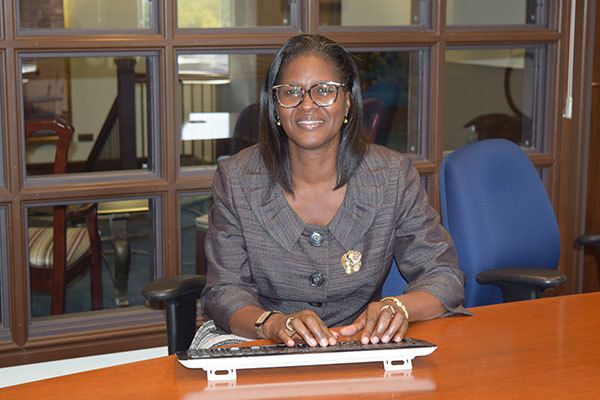Black History Month Alumni Spotlight – Telling the African narrative in her own way
Dr. Koryoe Anim-Wright, Ph.D. 1996, is an educator, fundraiser, and academic leader dedicated to telling the culturally rich African narrative. But, Dr. Anim-Wright works to ensure that narrative reflects the African voice instead of relying on others to tell the story. The Ghana native credits her parents for a strong work ethic. Her father was the first director of the only news agency in Ghana, from where she says she first understood her love of writing.

Dr. Koryoe Anim-Wright, Ph.D
Dr. Amin-Wright earned her undergraduate degree at Central State University in Ohio and served as Deputy Director of the Office of Sponsored Research, Contracts, and Grants and associate director of the Central State University Office of Development and International Programs, where she earned several major government grants, including a $550,000 USAID University Development Linkages Project grant that aligned CSU and Kwame Nkrumah University of Science and Technology in Ghana. She went on to serve in a variety of advancement positions at Western Connecticut State University, Danbury, CT., including vice president for Institutional Advancement, and director of the Western Connecticut State University Foundation, Inc. She earned her Ph.D. with a concentration in communication and development from Union in 1996.
In 2010, she returned home to Ghana to give back to her country. She served as director of Corporate Affairs and Institutional Advancement at the Ghana Institute of Management and Public Administration, and in 2015, she was named president of the African University College of Communications (AUCC), the first female to hold that position. In an interview with the Harvard Africa Policy Journal, Dr. Anim-Wright describes the role that higher education plays in leading to a better way of life. She also discusses the need for institutional advancement to grow across the continent to offer more scholarships to needy students.
She is currently acting dean of the Centre for International Education and Collaboration at the University of Professional Studies, Accra, Ghana, responsible for facilitating opportunities for international experience and exchange through strategic partnerships and connections. She is also a senior lecturer in the UPSA Communications Department. She serves on the Board of Directors of MG Radio Ltd and is a member of the Ghana Institute of Languages Board.
Recently, she visited her alma mater to meet with UI&U President Karen Schuster Webb. Their discussion centered on building a co-national model for Ph.D. programs between the two universities that is online and hybrid and leverages both institutions resources. Plans are underway now to build this program in the near future.
In the Q & A below, she shares her insights on leadership.
Q. How do you define leadership?
A. I define leadership as the ability to serve others. I believe in an all-hands-on-deck philosophy. My belief is that to lead, one has to serve, and have empathy to understand the journey of those you lead.
Q. Share an example of how you’ve put leadership in action.
A. Watching my students excel. I love taking students under my wing and working directly with them to build their self-esteem, and help on their journey toward their purpose. Watching them then fly on their own and achieve their goals – that’s a great feeling.
Q. What leader do you admire most and why?
A. The leader I admire most is Maya Angelou. She embodied her words. Her life and achievements are an inspiration to me and inspire me to be better.
Q. What is your favorite inspiring leadership quote?
A. My favorite inspiring quote is, “Never let go of your dreams.” Once I had a student who lacked self-confidence and was very shy. I told her she had great potential and to never let go of her dreams and took her under my wing. Before long she just blossomed. Just before graduation, she brought me a wooden plaque with those words carved in the wood and presented it to me. I have it to this day. And she and I have remained in touch.
Q. When did you first feel that you were a leader? What was the experience?
A. I didn’t realize I was a leader until I started to get promoted in my professional life. Prior to that, I was just being me, focusing on work and giving it my all. When the promotions kept coming, that’s when I realized that people around me saw me as a leader and I eventually began to feel and see myself as one.
Union’s Ph.D. program incorporates interdisciplinary study to expand and deepen knowledge and expertise. Click here to learn more. Your Goals. Your Success. Your Union. We’ve Got U!